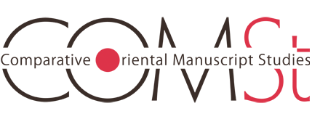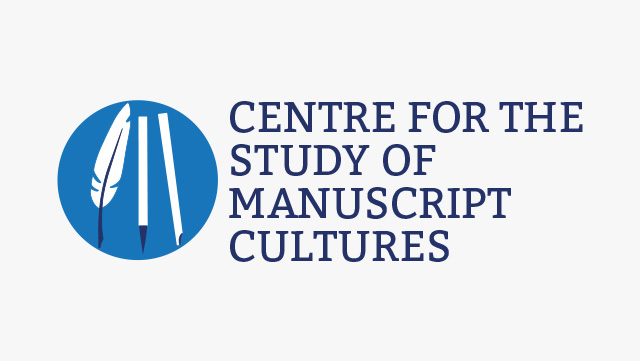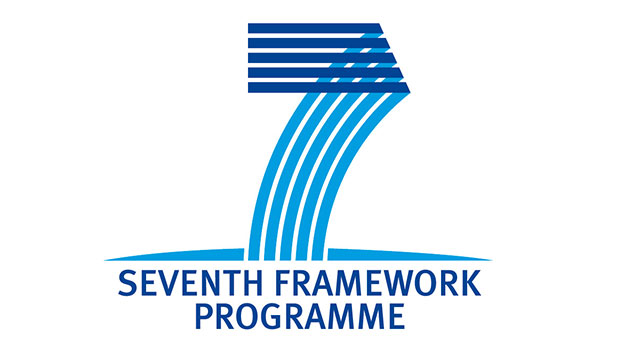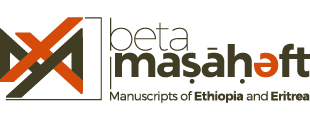Cooperation partners
The success of the project is only possible thanks to close cooperation with other projects and institutions, both nationally and internationally.
The main partners are listed below. See also the mission and research reports for significant outcomes of other external cooperations.
ʾAbǝnnat Tǝmhǝrt
ʾAbǝnnat Tǝmhǝrt: Documenting an Ancient Education System in Africa
ʾAbǝnnat Tǝmhǝrt in Ethiopia is a research project headed by Prof. Alessandro Bausi (HLCEES, Hamburg) and Prof. Ass. Mersha Alehegne Mengistie (Addis Ababa University) and funded by the Gerda Henkel Foundation. It focuses on documenting the tangible and intangible heritage linked to the traditional church education in Ethiopia. Manuscripts described by the project are part of the Bm research environment.
Alpheios

Alpheios is a research project in Digital Humanities based in Niskayuna, NY, USA, which builds evidence-based, open-source software to support study of the world's classical languages and literatures. It has developed Alpheios Alignment and Morphological annotation tools to support ingest, tokenization, alignment and annotation of Ancient Ethiopic texts for the Beta maṣāḥǝft research environment.
BeInf
BeInf – Beyond Influence: The Connected Histories of Ethiopic and Syriac Christianity
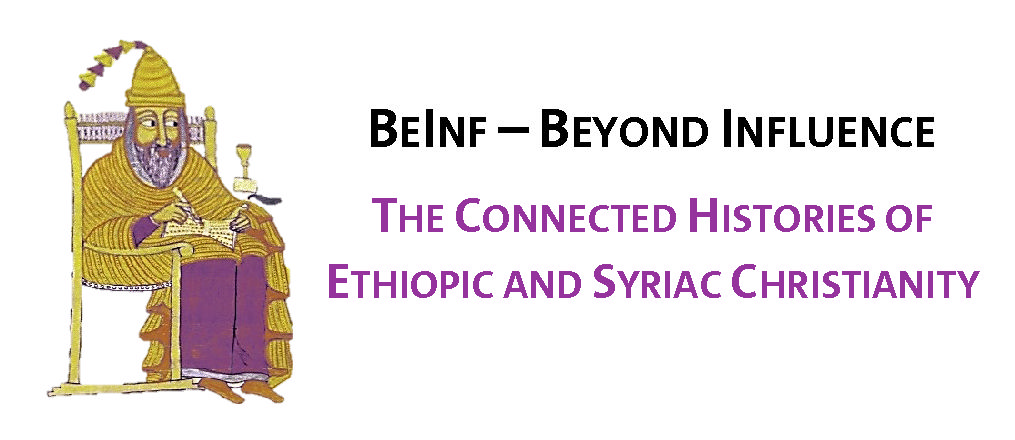
The ERC-funded BeInf project interrogates the connected histories of Ethiopic and Syriac Christianity in their various complexities and nuances. It accomplishes this task through a series of five discrete, but complementary case studies addressing: 1. Aramaic loanwords in Ethiopic; 2. the so-called Nagran Episode, in which the sixth-century Aksumite ruler Kaleb intervened on behalf of Syriac Christians who were being persecuted in the Arabian peninsula; 3. the Ethiopic Abba Gärima Gospels, including especially their illumination programs; 4. the hagiography of the Nine Saints, who are alleged to have brought about a “second christianisation” of Ethiopia in the late fifth and early sixth centuries; 5. the Ethiopic reception of Syriac literature. Through these case studies, BeInf aims to chart an innovative path forward in moving beyond influence as the primary analytical category for analysing connections, contacts, exchanges, as well as the actors and cultural brokers responsible for them.
CMCL: Corpus dei Manoscritti Copti Letterari
CMCL: Corpus dei Manoscritti Copti Letterari
The Corpus dei Manoscritti Copti Letterari (CMCL) is a digital philology project that in 2011 moved from Rome to Hamburg. Its focus lies in Christian Egyptian culture. It establishes among other things a repertory of authors and works of the Coptic literature, which is used in creating the BM authority files. CMCL project members closely cooperate with the BM project.
COMSt
The cooperative network Comparative Oriental Manuscript Studies is born from the European Research Foundation Research Networking programme of the same name. it aims at facilitating cross-cultural academic dialogue and active exchange in the field of oriental manuscript studies, here defining 'oriental' as all non-occidental (non-Latin-based) manuscript cultures which have an immediate historical (‘genetic’) relationship with the Mediterranean codex area. It strongly inspires the guidelines adopted by the Bm project. .
CSMC - Centre for the Study of Manuscript Cultures
The Centre for the Study of Manuscript Cultures (CSMC), now part of the Cluster of Excellence Understanding Written Artefacts, brings together an international and cross-disciplinary research community to study written artefacts at Universität Hamburg. It is engaged in fundamental research, investigating from both a historical and comparative perspective, based on material artifacts, the empirical diversity of manuscript cultures. .
DASI
DASI: Digital Archive for the Study of pre-Islamic Arabian Inscriptions
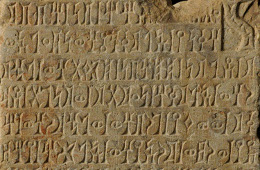
The project DASI (Digital Archive for the Study of pre-Islamic Arabian Inscriptions, PI Alessandra Avanzini), hosted by the University of Pisa and Scuola Normale Superiore of Pisa collected all known pre-Islamic Arabian epigraphic material into a comprehensive online database, now maintaned at the Consiglio Nazionale delle Ricerche, Rome. The XML-encoded descriptions of South Arabian inscriptions from Ethiopia are also available now through the Bm research environment.
DMA
Demarginalizing Medieval Africa: Images, Texts, and Identity in Early Solomonic Ethiopia (1270-1527)
The DMA project, focusing on manuscript illumination from the thirteenth to sixteenth century Ethiopia, is co-directed by Professor Dr Alessandro Bausi (Director of the Abteilung Afrikanistik und Äthiopistik and Director of the Hiob Ludolf Centre for Ethiopian and Eritrean Studies, Asien-Afrika-Institut, Universität Hamburg) and Dr Jacopo Gnisci (Lecturer in the Art and Cultures of the Global South, History of Art, UCL and Visiting Academic, The British Museum). The manuscript descriptions produced by the project are part of the Bm research environment.
EAE
EAe: Encyclopaedia Aethiopica
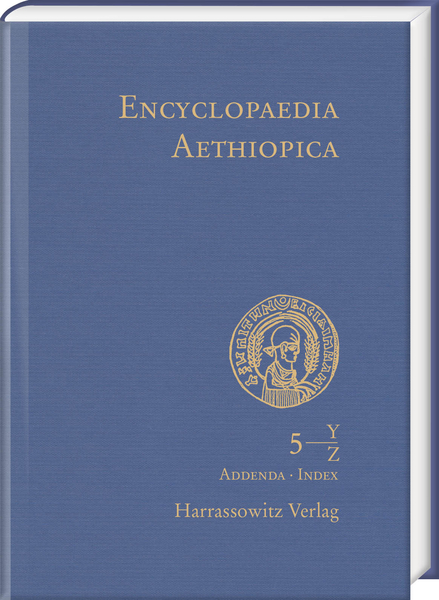
The Encyclopaedia Aethiopica (=EAe) was an international project towards the creation of a multi-volume reference work in Ethiopian and Eritrean studies, from 1994 up to 2014. Much of our project's metadata is inherited from the EAe.
EMA
EMA: Ethiopian Manuscript Archives
The Ethiopian Manuscript Archives (EMA) is a collaborative project carried out by historians and philologists working on manuscript documents produced by the Ethiopian Christian kingdom between the tenth and the twentieth centuries. It was developed at the Institut de Recherche et d’Histoire des Textes (IRHT, Paris, PI Anaïs Wion, Centre National de la recherche scientifique, Institut des Mondes Africains). The annotated XML data is being gradually made availabe through the Bm research environment.
EMIP
EMIP - Ethiopic Manuscript Imaging Project
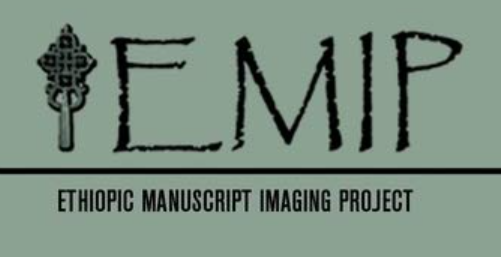
The mission of the Ethiopic Manuscript imaging Project (EMIP, PI Steve Delamarter, George Fox University) is to locate, digitize, catalog, and study Ethiopic manuscripts. . .and help others do the same. Images and descriptions of the manuscripts digitized by the project are being made gradually available through the Beta maṣāḥǝft research environment.
Ethio-SPaRe: Cultural Heritage of Christian Ethiopia: Salvation, Preservation, Research
During the years 2009-2015, an ERC project based at Universität Hamburg (PI Denis Nosnitsin) dedicated efforts to securing, preserving, evaluating and analysing the written heritage of Christian Ethiopia. The cataloguing database created by the projects, with images and descriptions of over 1,000 manuscripts has become part of the Beta maṣāḥǝft research environment.
HLCEES - Hiob Ludolf Centre for Ethiopian and Eritrean Studies
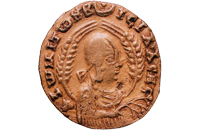
The Hiob Ludolf Centre for Ethiopian and Eritrean Studies at Universität Hamburg is a world leading centre in the study of Ethiopia, Eritrea and the Horn of Africa.
HMML Hill Museum and Manuscript Library
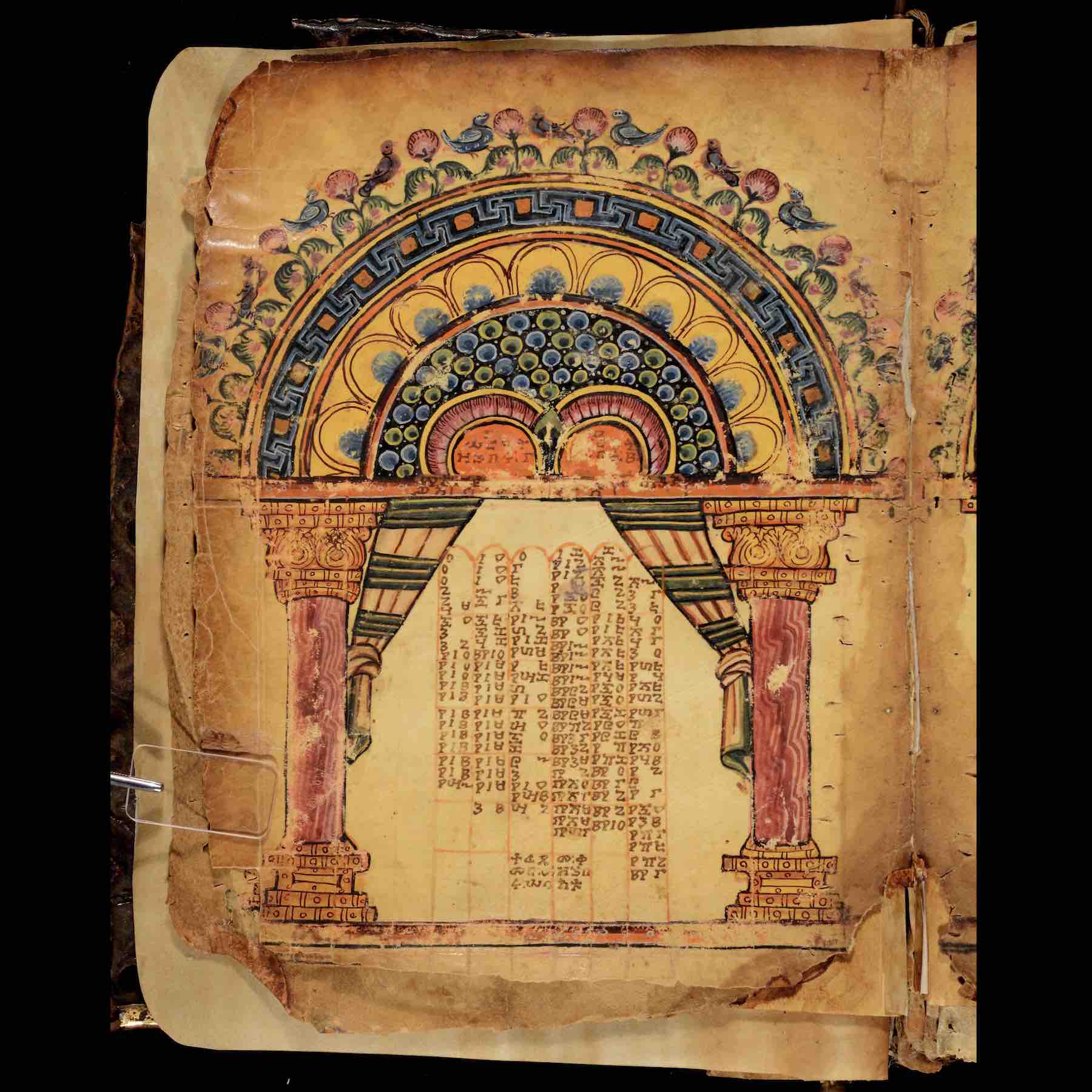
HMML’s Eastern Christian manuscript collection contains digital images and microfilms for approximately 75,000 manuscripts located in Europe, Africa, the Middle East, and South Asia. Short descriptions of the manuscripts microfilmed by the EMML Ethiopian Manuscript Microfilm Library and of those produced by more recent digitization projects launched by the HMML have been shared with the Bm research environment that also contains links to the virtual manuscript reading room of the HMML.
IslHornAfr
IslHornAfr - Islam in the Horn of Africa, A Comparative Literary Approach
The IslHornAfr project (ERC Advanced Grant 2014-2019, Alessandro Gori, University of Copenhagen) aimed to provide a pilot study of the Islamic history in Africa as it is reflected in the literary traditions of the Horn of Africa (Ethiopia, Eritrea, Djibouti, Somalia). Its database of images and descriptions of manuscripts has become part of the Beta maṣāḥǝft research environment.
PAThs - Tracking Papyrus and Parchment Paths: An Archaeological Atlas of Coptic Literature. Literary Texts in their Geographical Context
PAThs - Tracking Papyrus and Parchment Paths: An Archaeological Atlas of Coptic Literature. Literary Texts in their Geographical Context
The ERC Advanced Grant PAThs (2016-2021, PI Paola Buzi, Rome) aims to provide an in-depth diachronical understanding and effective representation of the geography of Coptic literary production, which is the corpus of writings, almost exclusively of religious contents, produced in Egypt between the 3rd and the 11th centuries in the Coptic language. Beta maṣāḥǝft and PATHs coordinate efforts in creating a clavis of Christian works circulating in Northeast Africa.
PELAGIOS
Pelagios Network
The Pelagios Network connects researchers, scientists and curators to link and explore the history of places. As part of the Pelagios community, BM-annotated data can be explored through the Peripleo map-based search engine.
PEMM
PEMM - The Princeton Project on the Ethiopian Miracles of the Virgin Mary

The Princeton Ethiopian and Eritrean Miracles of Mary digital humanities project (PEMM, PI Wendy Belcher, Princeton University) is a comprehensive resource for the Gəˁəz miracle stories written about the Virgin Mary in Ethiopia between 1300 and the present. It closely works together with the Bm team on creating a standardized repertory of all known miracles of Mary and identify them reliably in manuscripts.
Syriaca
Syriaca.org: Syriac Reference Portal
Syriaca.org: The Syriac Reference Portal (maintained by Princeton and Vanderbilt Universities) is a digital project for the study of Syriac literature, culture, and history. The online tools published by Syriaca.org are intended for use by a wide audience including researchers and students, members of Syriac heritage communities and the interested general public. In order to meet the diverse needs of users. Bm aspires alignment of authority files and compatibility with the Syriaca.org portal.
TEI
TEI: Text Encoding Initiative
The Text Encoding Initiative (TEI) is a consortium which collectively develops and maintains a standard for the representation of texts in digital form. Its chief deliverable is a set of Guidelines which specify encoding methods for machine-readable texts, chiefly in the humanities, social sciences and linguistics. Bm follows TEI guidelines and contributes to further TEI tagset development.
THEOT - The Textual History of the Ethiopic Old Testament Project
THEOT - The Textual History of the Ethiopic Old Testament Project
The Textual History of the Ethiopic Old Testament Project (THEOT) is an international effort (PI Steve Delamarter, George Fox University) to identify and to trace textual trajectories found in Ethiopian manuscripts that contain books included in the canon of the Hebrew Bible. It produces annotated editions of biblical texts that should be made partially available through the Bm research environment.
TRACES
TraCES: From Translation to Creation: Changes in Ethiopic Style and Lexicon from Late Antiquity to the Middle Ages

During the years 2014-2019, the ERC Advanced Grant TraCES (Grant Agreement 338756) aimed at analyzing the lexical, morphological and stylistic features of texts depending on their origins using the achievements of linguistics, philology, and digital humanities. An annotated digital text corpus of critically established texts was created. A number of valuable research tools have emerged as by-products of the project, including an Annotator (GeTa), the morphological parser of Ethiopic, and an electronic dictionary based on the 1865 Lexicon Linguae Aethiopicae by Dillmann, now part of the Bm research environment.
Transkribus
Read-COOP and Transkribus
Transkribus is a comprehensive platform for the digitisation, AI-powered recognition, transcription and searching of historical documents. Our project is a member of the Read-COOP association through the Academy of Sciences at Hamburg. We contribute to the package development of Transkribus for Ethiopic script recognition and use Transkribus for transcribing manuscripts from images.


